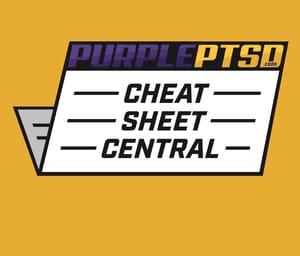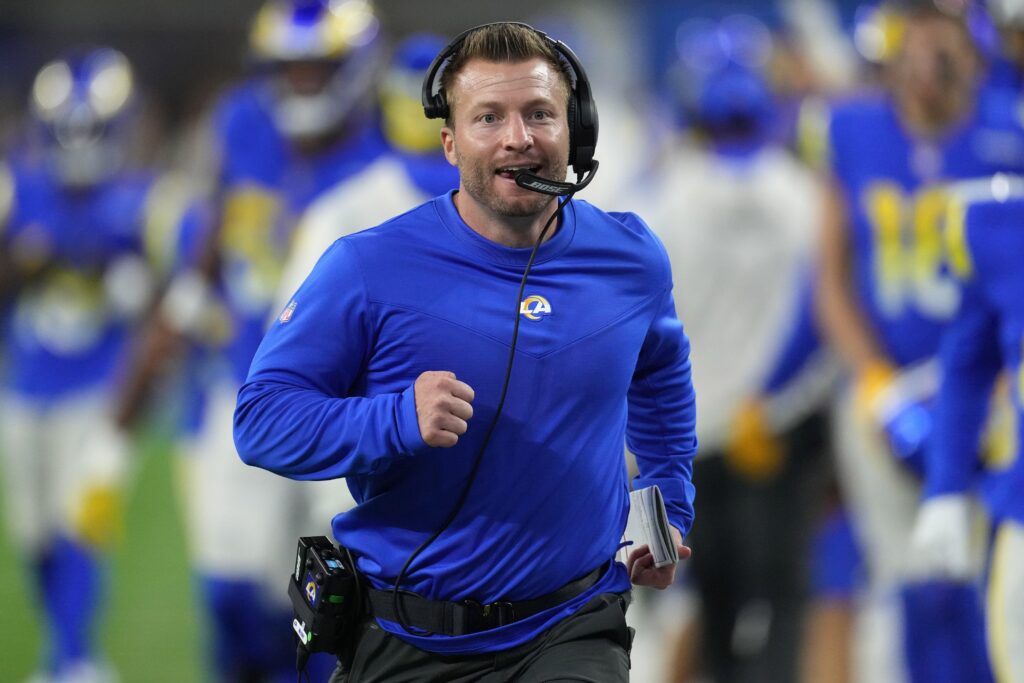Pushing the Ethical Boundaries of Fantasy Football

It’s late in the season, and there’s more at stake than a spot in the NFL playoffs for our favorite football team. For many, the playoffs are already here—the final 3-4 weeks of the season constitute playoff time for legions of fantasy football participants around the globe. And by legions, I mean 40 million players in the U.S. alone, according to ESPN.
As a hypercompetitive individual, I enter each fantasy season hellbent on one thing: winning. I study for the draft, I work the waiver wire, I look for the trade that might put my squad over the top. I monitor my team throughout the weekend and place far too much of my self-worth in the sad little basket that is my fantasy squad’s weekly performance. Big victory? I’m a god among men. Disheartening defeat? I’m neither worthy of the company of my fellow human beings, nor able to stand the sight of my own reflection in the mirror.
Is this healthy? No, it is not.
I say that only because I lost last week’s game. If I had won, I’d tell you this kind of hypercompetitive behavior is nothing short of the reason our civilization has progressed to its current state of wonder and achievement, and that Charles Darwin was absolutely right.
This week my commitment to winning came into direct conflict with the alternate reality that is Fantasy Football Ethics. It’s a world where “doing the right thing” may or may not be paramount over winning. The issue at hand is: when is it not OK to try to win this week’s game?
Much has been written about “tanking” in pro sports – some see a late season nosedive as a necessary evil for lowly clubs seeking to gain high draft picks and increase their talent capital for years to come. Others feel that winning should be the only end, and rules must be instituted to prevent tanking to occur.
But that’s the “real world” of pro sports. What about in fantasy football?

Purple PTSD Also Read: Vikings RB Gets a Chance with Super Bowl Champs
A typical fantasy league may have twelve teams, six of which will qualify for their league’s playoffs. Unlike the NFL, most of the major fantasy platforms that operate leagues provide solace to the other half of each league, the poor saps who fell short of playoff qualification, by staging a consolation tournament—a.k.a. the “Tournament of Losers.”
My team, I’m ashamed to say, did not qualify for the playoffs in my ESPN-run league. I fell one field goal on Monday Night Football short of winning the final regular season game and squeaking into the playoffs. Instead, I’m on the outside looking in, watching the Winners duke it out while six of us put our tails between our legs in shame, forced to view our own mediocrity through the lens of the Losers Bracket.
Now, I have no illusions that this consolation event has any meaning—none of us who participate will ever brag about that year in 2021 when our team put on a three-week blitzkrieg that left pure carnage in its wake, allowing us to claim the Seventh Place title and the Consolation Tournament Crown. At best, it’s a reason for us to find slightly more entertainment for ourselves during the season’s final weeks, giving us a reason to care (slightly) about the performance of the players we had chosen earlier in the year to lead us…somewhere. Still, for whatever perverse reason, I want my team to win its games, even during the Losers Tourney. And for that reason, I still try.
Is this OK? Is it OK to try when you’re in the Losers Bracket?
I thought it was, but I inadvertently earned the ire of some members of our fantasy league this week when, looking to bolster my running back situation, I placed a free-agent claim on Ronald Jones—the Tampa Bay running back who has ascended to #1 status in the Bucaneers backfield after Leonard Fournette went on injured reserve for the remainder of the NFL regular season. By virtue of my 6-8 record, I of course, had waiver priority over all six big boys who qualified for the fantasy playoffs, and so I was able to lock up Jones for my final gasps of fantasy football irrelevance here in December.
Here I was, in the Tournament of Losers, still trying to win.
Today’s league e-mails have included a semi-heated debate about whether this was indeed not OK. Some see my waiver claim as pointless, and suspect that it was done strictly to mess with competitive virtue of the primary playoff tournament; some see it as a move that all but handed the tournament to its #1 seed and defending league champion—I deprived the remainder of the field of the opportunity to grab a valuable player and potentially knock the king off his mountain. There is indignance and calls for rule changes and a dark cloud forming directly over my house as I ponder the Ethics of Fantasy Football. It has occurred to no one that my motivation was simply that I wanted to win one more game before the sun stopped shining for me on another fantasy football season.
So there you have it. Today’s ethics debate, then, is this: Is it OK to keep trying to win—to want to win—when you’re in the Loser’s Bracket? I, for one, feel that this is a metaphor for life. I will keep on trying to win, no matter how lowly I become. This is America, after all, where anyone can become President (and has), and this year’s loser can be next year’s Champ.
I eagerly await a debate among the nation’s great Ethicists and foremost Fantasy Football Experts, who can set straight me, my league, and the world at large on this matter once and for all. Until then–as 2021 comes to a close–I wish good luck to this year’s winners and losers both.
[brid autoplay=”true” video=”929764″ player=”26281″ title=”Top%20NFL%20free%20agents%20of%202022%20Top%2010″ duration=”56″ description=”Top NFL free agents of 2022.” uploaddate=”2021-12-23″ thumbnailurl=”https://cdn.brid.tv/live/partners/17660/snapshot/929686_s_1640288143796.jpg” contentUrl=”https://cdn.brid.tv/live/partners/17660/streaming/929686/929686.m3u8″]
